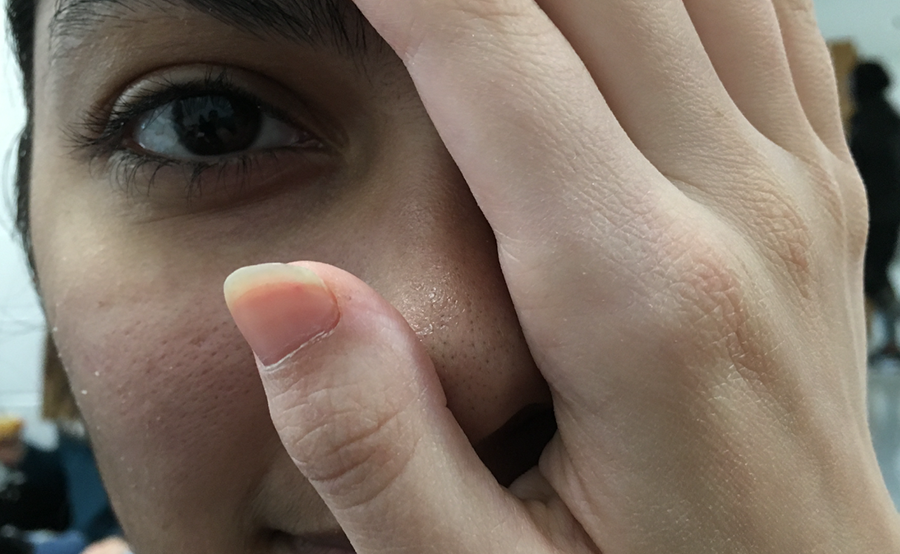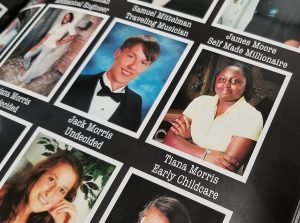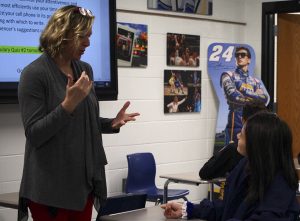A kid of two cultures
Junior Dhara Padhiar covers her face with white hands, depicting the double standard society has put on her. Society tends to cause problems for kids who identify with two cultures because of the inability to see them in more than one way.
February 28, 2019
The place where you’re from has a huge impact on your sense of identity and is very much part of how you answer the hardest questions about yourself. But there’s never an easy answer for these questions, and it’s even harder when your world is divided into two. This internal struggle is something many high school students have faced, especially while they seek to define and identify themselves.
The world they live in also does not make it any easier. For both halves, they are neither. So what are they then? I was not born in India, yet I speak the language and very much identify with my Indian counterparts — unlike my brother who identifies more with his American side. Yet every time I go to visit, I’m reminded of how “American” I am, how my Hindi is broken, and how I’m not truly Indian.
But I guess I was born in America, so maybe I should just consider myself American. Nope, wrong again, for my own driving instructor called me a “brown” person, and not a day goes by without looking at myself and thinking, “Wow, I feel foreign.”
The worst part? Even when I get back to feeling Indian again, many of the foreign exchange students take it upon themselves to insist that I’m “too white to be Indian,” solely because I have taken some of my personal beliefs from American culture.
There are many other students who are ethnically not American and have opened up to feeling the same way. Senior Erin Pham was born in the U.S., but ethnically is Asian. “I was born here, but I still have a lot of influences on how I act and what I do being raised in a household with different cultural beliefs.”
Pham has especially had struggles embracing the Asian side of her, due to lack of exposure and representation, and still closely identifies with her American side. Something that sticks out to her is the exchange she has with other people when they ask her where she’s from. “When people ask I say Atlanta, but then they ask where I’m really from,” Pham said.
Unlike Pham, senior Logan Jalil feels more connected to his Filipino-Japanese side, as he participates more in this aspect of his identity. “I grew up experiencing different languages and foods and arts,” Jalil said.
Senior Caroline Castillo believes that the double standard makes her feel too American if she doesn’t speak Spanish with her Hispanic family. “It has made me feel distant towards my culture and family,” Castillo said. She has struggled with feeling like she belongs due to neither identifying as Hispanic nor as American. “Honestly, it has made me feel really lost,” Castillo said.
This problem suggests a deep need to define ourselves. It is human tendency, after all. According to author and researcher Scott Barry Kaufman, our brains are wired to organize everything into neat little categories, but we also need to learn that that’s not how the world works.
One’s cultural identity is a complex idea, and it cannot be generalized to simply define who you are and how you are to be treated.
Therefore, I have stopped defining myself as either culture. My culture has shaped me, but it will never make me.











Dan Gant • Feb 28, 2019 at 9:54 pm
This should be a series of articles.